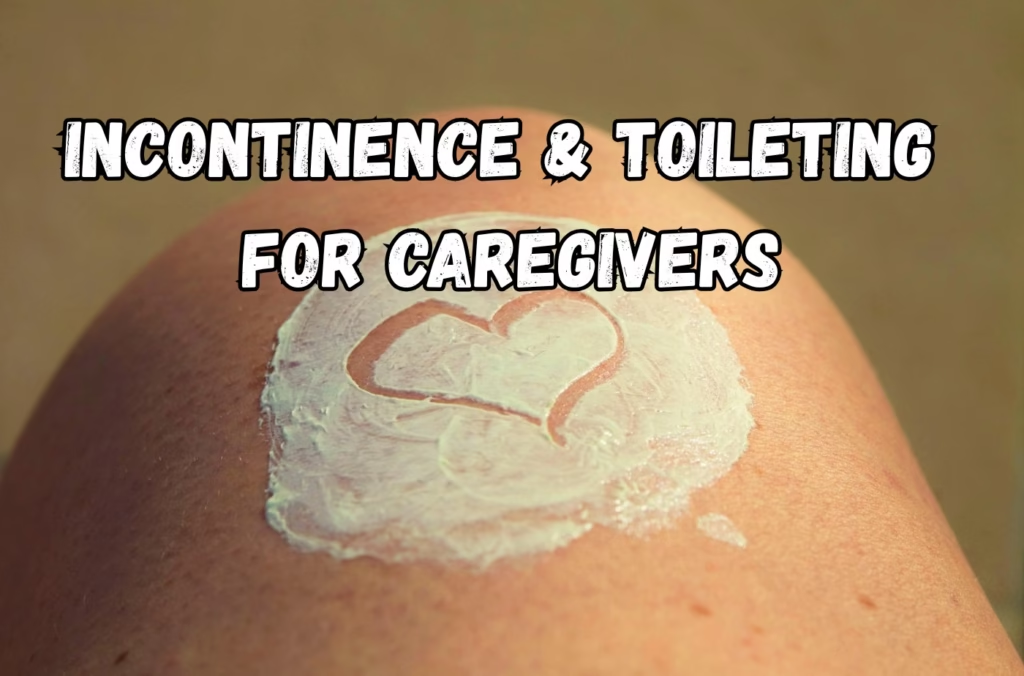In the digital age, caregivers are increasingly seeking sophisticated resources that expand their knowledge and provide support in their caregiving roles. Leveraging online resources for further information can transform the caregiving experience, offering fresh insights and connecting individuals to a community that understands their challenges.
1. Finding Comprehensive Online Resources for Caregivers
Identifying Authoritative Online Resources for Further Information
When seeking online resources for further information, it’s essential to focus on authoritative and reliable content. Look for websites affiliated with established health institutions, government agencies, or recognized nonprofit organizations. For instance, websites such as the Mayo Clinic and the Alzheimer’s Association provide evidence-based guidance and up-to-date research findings, which can be invaluable for caregivers.
You can also access the information provided by the National Institute on Aging or the Centers for Disease Control and Prevention. These resources offer medical insights and practical guidance on daily caregiving responsibilities, legal matters, and planning for the future.
Utilizing Forums and Social Networks for Caregiver Support
Forums and social networks can provide not just information but also emotional support. Platforms such as the Family Caregiver Alliance or the Caregiver Action Network host forums where you can share experiences, ask questions, or find someone to talk to who understands the complexities of caregiving.
Joining social media groups focused on caregiving can also help you connect with others in similar situations. These groups can be found on platforms like Facebook or LinkedIn. Often moderated by experienced caregivers or health professionals, these sessions offer a safe space to discuss challenges and share self-care and stress management strategies.
Remember to protect your privacy while engaging with these communities and take any medical advice carefully. It’s always best to corroborate information with healthcare professionals.
Focusing on these key areas will equip you to navigate the maze of caregiving with the support of a knowledgeable and supportive online community.
2. Leveraging Online Tools and Apps for Caregiving
How Technology Can Simplify Caregiving Tasks
Caregiving can be complex and demanding, but modern technology provides various tools to streamline and simplify the process. Digital calendars can help manage medication schedules and appointments with doctors. Meanwhile, home monitoring systems can provide peace of mind by allowing caregivers to watch over loved ones, even when they are absent.
Additionally, mobile applications can facilitate accessible communication between family members and coordinate caregiving duties, reducing the potential for miscommunication or schedule conflicts. Technology not only aids in scheduling and monitoring but also in maintaining the health records of the person being cared for, making it convenient to share vital information with healthcare professionals.
Apps and Platforms Dedicated to Caregiver Education and Support
Caregivers often require guidance and support to deliver the best possible care. Recognizing this, numerous apps and platforms have emerged focusing on caregiver education. They offer a wealth of resources, including articles, how-to videos, and online support groups, all tailored to the specific needs of caregivers. This educational content can empower caregivers by enhancing their skills and knowledge.
Furthermore, virtual support communities are another significant aspect of these platforms. They provide a space where caregivers can connect with peers, share experiences, and find emotional support. These digital tools can help reduce the isolation that sometimes accompanies caregiving roles, offering a sense of solidarity and shared understanding.
These apps and platforms can be treasure troves for those seeking online resources for further information. Caregivers can easily access up-to-date, reliable information that helps them make informed decisions about care strategies and coping mechanisms.
Embracing these technological solutions can significantly alleviate the pressures of caregiving. Integrating them into your caregiving routine can enhance the quality of care provided and improve your overall well-being and that of your loved one.
3. Online Educational Resources to Better Understand Caregiving
Enhancing Caregiving Skills Through Online Education
Many online educational resources are available for caregivers seeking to enhance their skills and knowledge. One of the most interactive forms of learning is through webinars and online courses, which are specifically designed for skill enhancement. These platforms provide both foundational understanding and advanced techniques in caregiving. Whether you’re a new caregiver or have years of experience, these courses can offer new insights and practical tips to improve the quality of care provided.
Many online platforms allow you to learn quickly, making fitting education into a busy schedule convenient. These courses often cover effective communication, managing medications, and understanding specific health conditions. Participants may also have the opportunity to earn certificates, which can add to their professional credentials.
Finding Strategies in E-books and Online Guides
Beyond formal courses, the Internet has many e-books and online guides on caregiving strategies. These resources provide in-depth information and actionable advice for various caregiving scenarios. They can particularly benefit caregivers seeking specific information on how to support their loved ones best.
These guides provide valuable insights into managing daily care routines and addressing the emotional and psychological aspects of caregiving. These written resources often include personal anecdotes, offering a sense of companionship and understanding that caregivers may not find elsewhere.
In summary, caregivers can find online resources for further information and support. Webinars and online courses offer excellent opportunities for skill-building, while e-books and online guides provide detailed strategies for day-to-day care challenges. Utilizing these resources can significantly support caregivers in their vital roles.
4. Connecting with Support Groups and Communities Online
Benefits of Joining Online Support Networks
Engaging with online support networks offers many advantages for caregivers. By connecting with individuals who have had similar experiences, caregivers can find a sense of community and understanding. This connection facilitates emotional support, helping to alleviate feelings of isolation. An online support network also serves as a reservoir of collective knowledge, offering valuable insights into navigating the challenges of caregiving.
Moreover, these networks can serve as a valuable source of practical advice, potentially suggesting solutions to caregivers’ issues. Access to the latest information on patient care, including articles, webinars, and forums, is a significant benefit. Additionally, caregivers have the opportunity to share their wisdom, which can empower them and provide a sense of purpose.
Finding Niche Online Groups for Specific Caregiving Situations
Each caregiving experience is unique, and finding an online group that caters to specific needs can be highly beneficial. For instance, groups may focus on caring for loved ones with particular conditions such as Alzheimer’s or Parkinson’s disease. Others may cater to long-distance caregiving or the challenges faced by caregivers of spouses.
Utilizing social media platforms and specialized websites, caregivers can search for groups using keywords relevant to their situations. Once found, participation in these niche groups allows caregivers to exchange tailored advice and strategies, offering comfort and practical assistance directly applicable to their caregiving scenario.
Online Resources for Further Information
For further information and access to a wide range of resources, caregivers can turn to online platforms dedicated to caregiving support. Websites such as forums, non-profit organizations, and healthcare portals typically provide a range of materials that caregivers may find helpful, including how-to guides, educational resources, and research studies. Such online resources are instrumental in broadening caregivers’ knowledge and enhancing the care they provide.
Remember, while online communities provide invaluable support, ensuring the credibility of the information shared within these networks is crucial. Always seek professional medical advice for specific healthcare decisions.
5. Navigating Health Information on the Web
Trusted Medical Websites and Online Journals
When searching for health information online, it is essential to visit reliable websites that provide accurate and up-to-date information. Trusted medical websites such as the Mayo Clinic, WebMD, and the Centers for Disease Control and Prevention (CDC) offer information that medical professionals review. These sites cover a wide range of health topics, from disease descriptions to treatment options, offering valuable insights for patients and caregivers alike.
Moreover, online medical journals such as the New England Journal of Medicine or The Lancet publish peer-reviewed research papers and articles that can give you deeper insights into medical conditions and the latest advancements in medical science. While some journals require a subscription, abstracts or summaries are often available to read for free, giving you a glimpse into the latest scholarly research.
Critical Evaluation of Health Information Online
Not all health information found online is created equal, and as a discerning reader, it’s crucial to evaluate the credibility of the information. Here are a few tips to critically assess online health information:
- Check the author’s credentials and affiliations to ensure they are experts in their field.
- Examine the date of publication to confirm that the information is current.
- Review the sources cited to see if they are reputable and relevant.
- Look for evidence-based information rather than personal anecdotes or opinions.
It’s also vital to cross-reference information using multiple sources to gain a comprehensive understanding of health-related matters. When in doubt, always consult a healthcare professional before making health decisions based on online resources.
Online Resources for Further Information
To continue educating yourself or seeking additional support as a patient or caregiver, robust online platforms and communities are designed to connect individuals with shared health challenges. Websites like PatientsLikeMe and HealthUnlocked provide forums where users can exchange experiences and advice. Remember, while online communities offer support and personal insights, they should not replace professional medical advice.
In conclusion, while the internet is a treasure trove of health information, navigating it wisely is crucial. By favoring trusted websites and critically evaluating online content, patients and caregivers can ensure they are accessing the most reliable and beneficial information available.
6. Advocacy and Financial Assistance Resources
Many online platforms offer legal and financial guidance for caregivers who need it. These resources can provide invaluable assistance on issues ranging from drafting wills and advance directives to understanding the economic implications of caregiving. Many offer in-depth articles, how-to guides, and even personalized advice that can help you navigate these complex subjects.
The internet is also a rich source for navigating government and nonprofit assistance programs online. With the rise in easy-to-use digital platforms, caregivers can readily access information about Medicaid, Medicare, Social Security benefits, and assistance programs tailored to specific conditions or disabilities. They can learn how to apply for these programs, understand the eligibility requirements, and receive tips on maximizing the benefits offered. Such insights can be crucial in managing the costs associated with caregiving.
online resources for further information
- Government Websites: Official sites like SSA.gov and Medicare.gov offer detailed explanations and step-by-step processes for accessing benefits.
- Legal Aid Organizations: These groups often provide free or low-cost services and have extensive digital libraries about legal rights and services.
- Nonprofit Groups: Organizations specific to certain diseases, such as the Alzheimer’s Association, have sections dedicated to financial planning and caregiver support.
- Personal Finance Platforms: These websites offer budgeting and planning tools essential for long-term caregiving sustainability.
By exploring these online resources, caregivers can gain a deeper understanding of the intricate web of support. This knowledge can alleviate some of the stress associated with the financial and legal aspects of caregiving, allowing them to focus more on what truly matters—the health and well-being of their loved ones.
Interesting Fact: Studies show that caregivers who utilize online resources for further information and support often report feeling less isolated and more empowered in their caregiving roles, illustrating the vital role the internet plays in modern caregiver support systems.


